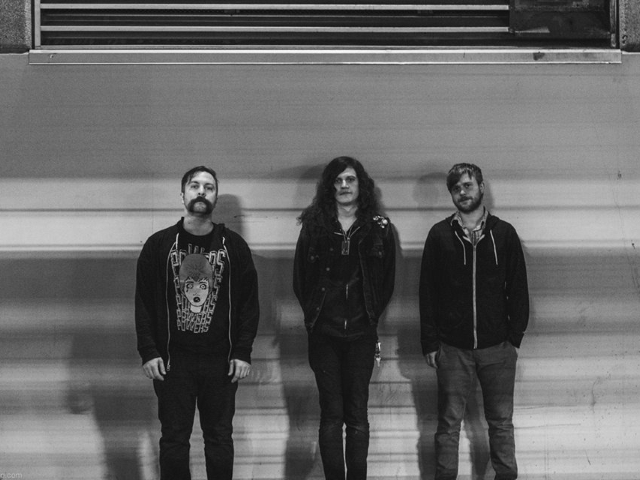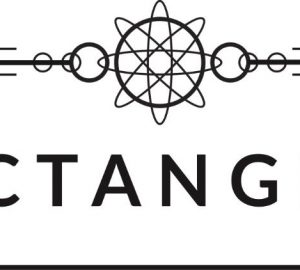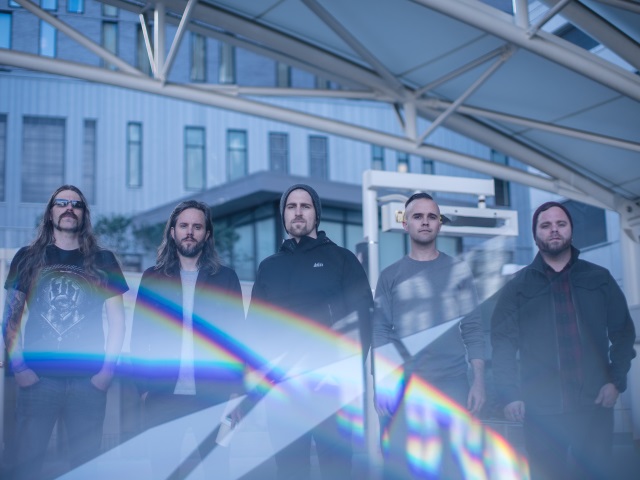MUSIC FEATURE: The Fall of Troy Are Here To Stay – Happier And More Motivated Than Ever Before
Photo Credit: Aya Tiffany Sato
After a three-year hiatus and a seven year gap between albums, The Fall of Troy have returned with their new album, OK, released for free – and independently – on the band’s website. Initially active between 2002 and 2010, The Fall of Troy’s eclectic musical style includes bits of math rock, post-hardcore, metal and progressive rock. We spoke to lead vocalist and guitarist Thomas Erak and drummer Andrew Forsman about the release of OK and the events surrounding its recording.
A recurring theme that becomes apparent throughout speaking to Thomas and Andrew is how happy and confident in themselves they were recording OK, compared to where The Fall of Troy were just prior to their break-up. Speaking on this period, both Thomas and Andrew cite substance abuse as a factor in the lack of focus in previous albums. When they reformed, however, they felt that all these problems had gone.
“Now that everyone’s lives are good places we can remember why we started the band in the first place,” Thomas discloses, also noting that he was sick of playing in bands that “didn’t satisfy me as much as The Fall of Troy.”
Specifically, both members say the recording of OK felt more like the recording of their early albums. “It’s pretty significantly different from our last album, but it’s also more in line with where we started – if you keep going long enough in the same direction you’ll end up where you started,” says Andrew.
This was reflected in the recording sessions for OK: “Recording it was a really organic process,” according to Thomas, “just us three in a room together playing the songs and then overdubbing stuff, it was very simplistic and stripped down. There was no big, crazy production it was just like, let’s play what sounds good, use gear that sounds good.” Thomas even goes as far to say that he feels an album like OK might have come after 2007’s Manipulator had bassist Tim Ward not left the band.
The band also returned to an ideology where they did not try to impress anyone but each other, with Andrew noting that trying to come up with a “fucking crazy album” that “lives up to some imaginary standard” was a far more stressful approach to writing than simply “going with our gut.” He continues, saying that “what was the most fun for us was writing stuff that we got stoked on,” rather than trying to appeal to other people.
Thomas directly relates this to the band’s earlier records, noting that they “weren’t trying to impress anyone else” with those records, no-one but “the other two people in our band.”
“When you start to depend on the income from your art, it changes your relationship to it,” Andrew notes, saying that OK was a move away from this line of thinking, both in its writing and recording sessions and the band’s decision to release it for free.
The end result is definitely a more streamlined, hard-hitting finished product, with both band members comparing it to their 2008 EP Phantom on the Horizon, a more wild, adventurous and “crazy” opus.
“I wouldn’t say OK is indulgent,” asserts Andrew, “we didn’t pursue every idea we had. It’s the anti-Phantom on the Horizon.”
With such an eclectic, original sound, it would be fair to say that The Fall of Troy have never been influenced by musical trends surrounding them, more often inadvertently starting them. Thomas notes that even when they were influenced by trends, it was largely bands from their local scene. Andrew notes that while there is very little the band are directly influenced by musically, they strive to achieve a level of quality set by their peers. “There are people who I follow who are musicians who I feel like, they set the bar somewhere and you just try to come in at a level that’s equivalent to them,” he says, and cites The Dillinger Escape Plan and Glassjaw drummer Billy Rymer as influence because “every time he’s on something he brings a level of quality to it – he has a sound that is very much himself and I guess that’s what I want. I want to sound as much like myself as possible.” This frame of mind, along with a less self-indulgent approach to songwriting, was central to the OK sessions.
In addition to a renewed energy and confidence in the recording of OK, The Fall of Troy also embraced an unconventional release method. Not only is the album available for free to download; there is a cheap option for fans to download extra artwork for the album (in addition to the traditional selling of a physical copy); as well as two different versions of the album.
“Other than the fact that we knew for sure we didn’t want to sign to a record label, at the time we just wanted to give this record to the people who really wanted it,” says Thomas, “without them having to spend any money or anything.”
On record labels, the band doesn’t necessarily describe them as being a bad thing, with Andrew asserting his love of every label The Fall of Troy has been affiliated with, but saying that the band are “on a different part of our journey now,” and are enjoying their creative and commercial freedom.
Thomas goes on to describe the relationship between The Fall of Troy and their fans – showing that he and the band definitely harbour no delusions of rock stardom, admitting that “we’re actually pretty poor” and that their fans recognise this and will donate if they can. Thomas describes OK as a gift to those people, noting that as a band, they didn’t feel the need to sell their music to them. Andrew agrees, saying that “above all else, our fans deserve it because they’ve stuck with us through a lot of years of uncertainty.”
Andrew also acknowledges that releasing the album for free gave him and the band a chance to take control of their fear of commercial failure, which again brought The Fall of Troy back to an earlier stage where their music didn’t revolve around monetary gain, but simply sharing their art with others.
He continues: “We were like, if this is going to succeed let’s let it succeed, based solely on the generosity, or the level of interest of people who hear it, rather than trying to squeeze every last penny out of everybody.”
Two versions of OK exist, with the second being referred to as OK2 and being released the month after OK. “It’s like two completely different versions of the same album,” explains Thomas. The first version of OK, the band explains, was mixed by Chuck Macak, while OK2 had mixing done by Johnny Goss, who had originally recorded and produced the album.
Thomas explains that both Chuck and Johnny come from different trains of thought regarding mixing, describing Chuck as having a “big, in your face” approach, while Johnny’s mix was much more stripped down. Each version of OK also features different artwork by different artists.
As for the decision to release both mixes, it came down to the fact that the band simply liked both mixes, and for different reasons, seeing as both Chuck and Johnny took different approaches to their mixing. Andrew notes that different fans prefer different versions of OK: “It was funny,” remembers Andrew, “even when the first mix was released all these people were commenting, and I knew the second mix would be much more appealing to them. People done it with the second mix too, like, this isn’t for me and I like the first one more.”
“And since we’re doing it for free, it’s really not a cash-grab,” he points out, showing that the album’s free release opens up the door for more opportunities. So much so that the band also hinted that they’re not quite done with OK, and that there may in fact be more releases of it to come.
With OK, The Fall of Troy also allowed fans who might have been unable to purchase more expensive vinyl or bundles an opportunity to buy a minimal-level package that costs $5 (about £3.50) which included a download of OK in various file formats, as well as extra album artwork and liner notes.
“If you want to listen to our record you can do it for free,” explains Thomas, “but if you want the whole thing I don’t like $5 is crazy. The record cost money for us to make, and I think that minimal level of stuff is just a way to ensure that we can pay back what we lost making the record.”
Andrew compares the package to a VIP concert experience and notes that not everyone will want to pay extra for artwork etc., just like people who would simply want to watch a band play at a concert.
Andrew also notes that this gives more of a chance for money to be earned back by the other people who worked on the album, saying “It’s okay for us to not get paid, that’s on us, but the people who worked on the album need to get paid for their time in art, so its a way for us to subsidise our ability to bring these artists, producers, recording engineers, our ability to bring them exposure to an audience.”
So, after the recording and release of OK, where is The Fall of Troy and where are they going?
“I think we’re okay.”
“That was awful.”
Terrible puns on their most recent album’s title aside, Thomas says the band feel proud of OK and its success, as well as being happier than they have been in a while inside their respective personal lives. This is a factor which surely has positively affected the recording of OK and beyond.
“The immediate future has like two and half months of non-stop touring,” says Andrew, but also muses on the less immediate future, expressing a wish to “take chances” on “interesting projects” outside of the traditional album-tour cycle, exercising the full extent of freedom from labels.
Even if their future is uncertain in terms of what exactly is coming up in the long run, it’s clear that it’ll be on their own terms. The Fall of Troy are here to stay: happier, more motivated and more focused than ever before.
Written by: Alan Cunningham





